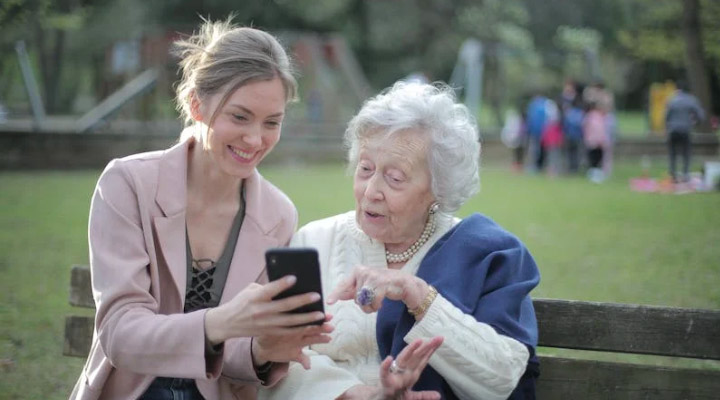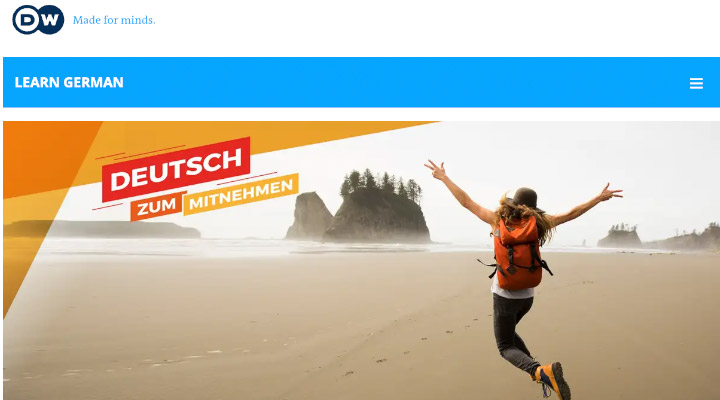Embark on an exhilarating linguistic voyage as you delve into the art of learning German independently. In this guide, we unveil the intricacies of mastering the language on your own terms, providing a roadmap for a personalized odyssey to linguistic excellence. The decision to learn German by yourself is not just a choice; it’s a declaration of autonomy, a commitment to embrace the challenges and relish the triumphs uniquely tailored to your pace and preferences.
As you navigate this solo symphony of language mastery, we’ll explore the advantages and address the challenges, setting the stage for a transformative learning experience. From setting clear goals and selecting diverse resources to immersing yourself in cultural nuances, this guide is your companion, offering insights, strategies, and motivation to make your German learning journey a thrilling and enriching endeavor. Get ready to unlock the door to linguistic fluency on your terms.
Steps for learning German on your own
Setting Clear Goals
Setting clear goals is the foundational compass for your German learning expedition. Imagine this process as charting your course on a linguistic map, where each goal becomes a milestone guiding you toward fluency. To embark on this journey, start by defining the purpose of your German exploration. Are you aiming for conversational ease, career enhancement, or cultural immersion? By crystallizing your objectives, you create a roadmap that not only illuminates the path ahead but also sparks motivation.
Consider crafting a realistic timeline, breaking down your language goals into manageable milestones. These waypoints provide not only a sense of achievement but also checkpoints to evaluate progress. Whether you’re a casual learner or an aspiring polyglot, setting clear goals transforms your German learning experience from a nebulous venture into a structured and achievable endeavor. So, let the goals you set be the guiding stars that illuminate your path to linguistic excellence.
Selecting Learning Resources
Embarking on your solo German language journey involves curating a diverse and dynamic toolkit of learning resources. Think of it as assembling a personalized arsenal to conquer the intricacies of the language. Online platforms such as Duolingo, Babbel, and Memrise offer structured courses, making them the cornerstone of your digital curriculum. However, don’t limit yourself – integrate traditional tools like textbooks, which provide in-depth insights into grammar structures and vocabulary.
Podcasts, a treasure trove of linguistic nuances, add an auditory dimension to your learning. Immerse yourself in German literature to absorb cultural subtleties and diverse expressions. The beauty lies in the variety – tailor your toolkit to your learning style, ensuring a holistic approach. Each resource becomes a brushstroke in the masterpiece of your linguistic journey, transforming German learning into a dynamic and engaging endeavor. So, explore, experiment, and curate the resources that resonate with your unique learning rhythm.
Building Vocabulary and Grammar Skills
In the garden of language acquisition, vocabulary, and grammar are the roots that anchor your linguistic prowess. To cultivate a flourishing German garden, employ creative techniques to nurture these vital elements. Flashcards, digital or traditional, become your botanical aides, helping you memorize words efficiently. Embrace repetition strategies, revisiting words in different contexts to fortify your memory and understanding.
Venture beyond rote memorization by engaging with diverse resources. Explore German-language books, articles, and blogs to encounter words in their natural habitats. This exposure not only broadens your vocabulary but also introduces you to varied grammatical structures. Embrace the intricacies of German grammar – the rules, exceptions, and the delightful nuances that breathe life into the language.
Consider adopting immersive techniques, where language becomes a living entity rather than a set of abstract rules. By tending to the roots of vocabulary and grammar with diligence and creativity, you cultivate a linguistic garden that will blossom with the vibrant colors of fluent expression.
Practicing Listening and Speaking
Fluency in German is not just about mastering words; it’s about tuning your ear to the symphony of the language and finding your voice within it. Elevate your listening skills by immersing yourself in authentic German media – podcasts, audiobooks, and music. This not only exposes you to various accents and tones but also enhances your understanding of colloquial expressions.
Engage in language exchange programs, where native speakers become your conversation companions. Platforms like Tandem and HelloTalk facilitate meaningful interactions, allowing you to apply your theoretical knowledge in real-time conversations. This dynamic exchange not only refines your speaking abilities but also introduces cultural nuances and everyday phrases that textbooks might miss.
Challenge yourself with German films and TV shows, observing how native speakers articulate words and phrases. Mimic their intonation and rhythm, letting the language flow naturally. Remember, proficiency in listening and speaking is a dance – you learn the steps by immersing yourself in the music of the language. So, step onto the linguistic dance floor, embrace the melodies, and find your own rhythm in the German tune.
Cultural Immersion and Real-life Applications
The true essence of learning a language extends beyond vocabulary and grammar – it resides in the heart of culture. Immerse yourself in the rich tapestry of German culture to add vibrant hues to your linguistic canvas. Dive into German literature, exploring the works of influential authors like Goethe and Hesse, not merely as language exercises but as windows into the soul of the nation.
Engage with German music, from classical compositions to modern pop, and absorb the lyrical nuances that encapsulate the spirit of the language. Films and documentaries offer a visual immersion, allowing you to witness everyday life, gestures, and expressions that textbooks can’t capture.
Beyond the virtual realm, seek real-life applications for your budding language skills. Join German-speaking communities, attend language meetups, and participate in cultural events. These experiences offer a dynamic canvas for you to apply your knowledge, transforming theoretical understanding into practical proficiency.
Your journey to German fluency becomes a masterpiece when culture becomes an integral part of your learning palette. So, let each cultural immersion be a brushstroke, painting a vivid and authentic portrait of your evolving linguistic adventure.
Consistency and Motivation
In the marathon of language learning, consistency and motivation are the steadfast companions that keep your flame burning brightly. Establish a realistic and sustainable study routine, carving out dedicated time each day. Treat language learning not as a sprint but as a steady journey, where each step, no matter how small, contributes to your progress.
Celebrate milestones along the way – whether it’s mastering a challenging grammar concept or confidently engaging in a conversation. These victories fuel the fire of motivation, reminding you of the tangible fruits of your efforts. Consider maintaining a language journal, reflecting on your learning experiences, challenges conquered, and the sheer joy of linguistic exploration.
Embrace the power of varied learning methods to keep things fresh and engaging. Alternate between textbooks, online platforms, and immersive experiences to prevent monotony. When faced with challenges, view them not as obstacles but as opportunities to refine your skills.
Surround yourself with a supportive language-learning community, be it online forums, language exchange partners, or local meetups. Sharing your journey with others not only provides valuable insights but also adds a social aspect to your learning, making the process more enjoyable.
Remember, the path to German proficiency is not a straight line but a series of steps, each contributing to the bigger picture. Consistency and motivation are the threads weaving through this linguistic tapestry, making your journey not just educational but also enduringly rewarding.
FAQs about studying German by yourself
Q: Can I learn German without taking formal classes?
A: Absolutely. Many language enthusiasts have achieved fluency through the wealth of online resources available, proving that self-study is a viable and effective path to German mastery.
Q: How long does it take to become fluent in German on your own?
A: The timeline is individual, but with consistent and dedicated efforts, many self-learners achieve conversational fluency within a few months.
Q: Are online language exchange programs effective?
A: Yes, these programs offer a dynamic platform to practice with native speakers, fostering real-life conversational skills that complement traditional learning methods.
Q: What are the best apps for learning German on my own?
A: Popular language-learning apps include Duolingo, Babbel, Memrise, and Rosetta Stone. Each offers a unique approach to German learning, catering to different preferences.
Q: How can I practice German speaking if I don’t have access to native speakers?
A: Utilize language exchange platforms like Tandem or HelloTalk to connect with native German speakers for virtual conversations. Additionally, participating in online forums or joining local language meetups can provide valuable speaking opportunities.
Q: Are there scholarships or programs for self-learners to study in German-speaking countries?
A: While formal programs often require language certifications, some universities and organizations offer scholarships specifically for language learners. Research scholarship opportunities and language immersion programs in German-speaking countries.
Q: What are the most challenging aspects of learning German independently?
A: For many learners, mastering German grammar, especially its complex cases and word order, can be challenging. Consistent practice and exposure through various resources can help overcome these hurdles.
Q: Can I become fluent in German solely through online resources?
A: Yes, it’s possible. Online resources offer a wealth of learning materials, from interactive courses to authentic media. However, combining online learning with real-life applications, such as language meetups or travel, enhances fluency.
Q: How do I stay motivated during the learning process?
A: Set realistic goals, celebrate small achievements, and maintain a positive mindset. Engage with the language through diverse activities like watching movies, reading, or listening to music to keep motivation high.
Conclusion
Your journey to learn German independently is a unique and personal expedition. With clear goals, diverse resources, and unwavering consistency, you’ll not only conquer the language but also revel in the joy of self-discovery. Whether German opens doors for travel, career, or personal growth, the path to fluency is an adventure awaiting your exploration.










